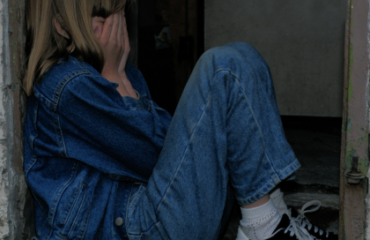
Whenever a big child abuse story comes into the media, my ears always pick up because it usually means that many survivors will be triggered into tragic memories of their abuse in childhood, and I am likely to be flooded with inquiries. As I listened to the headlines, I was intrigued that they centred not around the cynical grooming and sadism by John Smyth but around the failings of the Archbishop of Canterbury to report his knowledge of the abuse to the Police when he discovered the extent of the abuse in 2013.
What is the story?
As the media cranked up the pressure, and more victims called for Welby’s resignation, even his own bishops joined in, and inevitably, after several days and a refusal to accede, Welby capitulated and did the decent thing. I started to wondered, however, why the story was not about the abuser, but the failure of the religious institution of the Church of England to do the right thing.
As usual, I turned to the BBC to summarise the story:-
“A survivor of abuse by John Smyth has called for the Archbishop of Canterbury Justin Welby to resign over his failure to act after learning about the abuse in 2013.
Andrew Morse told the BBC he was abused for four years from when he was 17 during the 1970s and 1980s and described being beaten by the British barrister whom he met at Winchester College.
He said he felt Justin Welby’s admission that he had not done enough in response to the reports meant that the Archbishop and the Church of England had effectively been involved in a “cover-up”.
Lambeth Palace has said Mr Welby has no intentions of stepping down from his role.
Notice how, in this summary by the BBC, Smyth, the abuser is mentioned once, Welby 3 times, and his job title twice. When one considers that Smyth is dead and unconvicted for any of the offences by the Courts, thus unable to sue for libel, whereas Welby is at the top of the Church of England, it is perhaps surprising that all the focus is on the church and very little on the sadism that Smyth inflicted on young boys in his care.”
Again, the BBC
“I believe he was a predator,” Mr Morse said.
“He picked on a few boys within that group, befriend us, invited us back out to lunch at his family home and slowly over the years became a sort of father figure to me.”
Mr Morse explained Smyth built a relationship which then became more physical and violent.
Smyth told Mr Morse that he was “sinning” and needed to “mark those sense in a form of repentance that really would mean something to the Lord”.
“On my 21st birthday John Smyth told me that I was still sinning and that I required what he called a ‘special beating’,” he said.
“That was beatings of hundreds of lashes of a cane and I realised that I couldn’t take things any longer.”
I guess that the honing in upon the Church has a lot to do with it being the epitome of goodness, and a preacher of virtue. The phrase that comes to mind is “how are the mighty fallen?” Higher standards must be expected of the Archbishop of Canterbury than even a learned member of the bar.
Why does the Church get more of the blame than the abuser?
So, finally, why is the Archbishop of Canterbury and the Child of England getting more of the blame than the sadistic physical abuser of hundreds of children?
- If Smyth was still alive then there would be a future for him to be blamed and punished by being prosecuted by the police. As he has been deceased since 2018, there had to be someone else to blame
- It is not uncommon for survivors to have a very complex relationship with their abuser. On the one hand they have been given affection at, perhaps, a vulnerable time in their life. On the other hand they have been manipulated into illegal sexual activity with a person in a position of trust.
- Although victims feel let down, manipulated, groomed, and physically invaded, they nonetheless often feel guilty about complaining, leading to the prosecution, and imprisonment of their abuser for many years.
- So why do they feel guilty? Often the abuser is the first person that has given them some real affection. Sadly, although the affection is conditional upon abuse and the performance of abusive acts, they are told that this is normal, and what all children do with grown adults. That thought remains, as does the feeling of being wanted.
- To complicate matters even further, the child is told that they are to blame, something which remains in their psyche for the rest of their life. If the abuse is their fault, how can their abuser possibly be to blame?
- The victim probably thinks that the abuser has an illness that makes them prefer children as their sexual partner and that they need treatment rather than punishment.
- The Church of England, which holds itself out as a paragon of virtue, has none of the above excuses and would find it easier than the abuser to report the abuse which they have knowledge of. If they had done the right thing, then countless other victims could have been saved from abuse.
- Abuse is more about abuse of power than an illegal sexual act. The ultimate abuse of power is the cover-up because the institution is a lot more powerful than the abuser. So the failure to report is a bigger breach of trust than the abuse itself, arguably.
Mandatory Reporting
The story in the press reminded me of our campaign for the introduction of the crime of Mandatory Reporting. To remind you, this is a law that makes the failure to report abuse to a child that is either witnessed, know about, or reasonably suspected to be a criminal offence, where the offender is someone who is in charge of children or in the child care arena.
Mandatory Reporting was one of the recommendations made by IICSA (Independent Inquiry into Child Sexual Abuse), the final report for which came out in October 2022. Although an attempt was made to introduce the law into legislation by the last government, it was interrupted by the recent election. So far there are no signs of any of the recommendations being brought into force, something which, again, we are campaigning for.
What if?
One wonders whether, if mandatory reporting had been the law in 2013, Justin Welby, fearing criminal prosecution if he failed to report, might have reacted differently and not kept the knowledge of Smyth’s abuse a secret. Having reviewed the evidence, it is perhaps not so surprising that the Church is getting more of the blame than the abuser.



